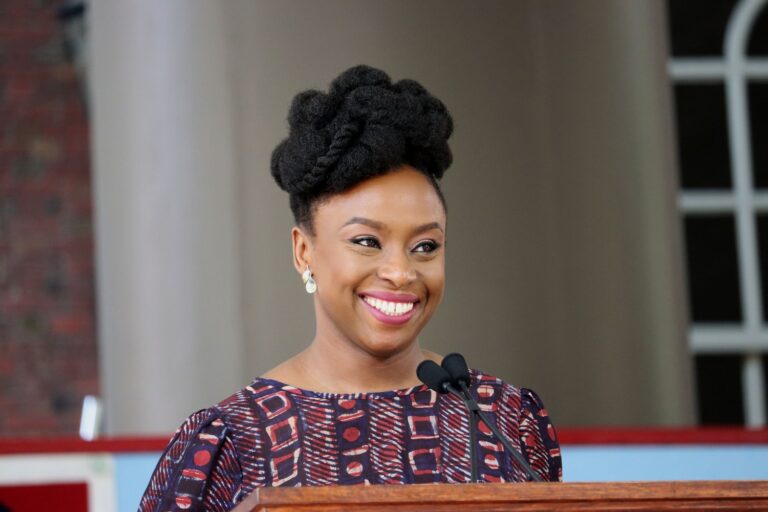Chimamanda Adichie, an award-winning writer of Nigerian descent, has called for more African stories to help preserve the continent’s heritage, history and development.
According to her, stories are an integral part of development because they encompass the total essence of a people and their worldview. She said they have a positive impact on psychology, education, politics and much more.
Adichie spoke at the launch of CANEX Book Factory and the Africa Publishing Prize, held on Thursday at the Creative Africa Nexus (CANEX) Summit, during the 2023 Hybrid Intra-African Trade Fair taking place held in Cairo. Egyptfrom November 9 to November 15.
She said: “We need more stories on this continent because we need to reclaim our stories. We need stories because stories are an integral part of development.
“Our continent has so often been sidelined and maligned, and even though there have been changes, there is still too much condescension and too much pity towards this continent.
“And it must be said that there are also some Africans who, through their actions, enable the state of things.
“If we reclaim our stories, it will give us the confidence that comes from knowing who we are. We need more stories to be able to transform our myths into memory. »
According to her, today, African children attend elite boarding schools in different parts of the world and learn Greek mythology.
“But what is the difference between Persephone, the Greek goddess of planting seeds, and Ala, the Igbo goddess of the earth?
“It’s just that one story was told well and the other wasn’t,” she said.
Adichie said telling more African stories would give people and the continent more confidence and dignity in their heritage, thereby shaping policy and perception.
“There is an obvious psychological component to development: a nation without a strong sense of itself, a strong psychological sense of itself, cannot prosper.
“Stories can take away dignity and stories can also restore dignity.
“Stories shape policy and perception.
“I can’t tell you how many times people from different parts of the world have told me that after reading my novels, they began to see Nigeria differently,” she said.
Adichie advised that children should be exposed to reading storybooks as it would help improve their cognitive abilities and communication skills.
“We need more African literature because whatever your discipline, reading well-written imaginative writing will teach you to think creatively and complexly and we need to start early with our children.
“When children read storybooks regularly, they learn without even knowing that they are learning. Their vocabulary, communication skills and thinking skills improve.
“We need more stories so that future generations of Africans find it hilarious that there was a time when Africans went to school to learn that a European had discovered Victoria Falls and that a European had discovered the Niger River, even though Africans have lived there for generations. .
“I remember a conversation I once had with a Nigerian who was complaining that a European had said that Africans had built so few skyscrapers in Africa.
“And this Nigerian then said no, there are skyscrapers in Nigeria and skyscrapers in South Africa.
“And what struck me was that it seemed to me that the problem was actually that we sort of accepted that skyscrapers should be the basis on which to measure our growth.
“Sometimes I feel that even our aspirations as Africans are shaped by others.
“Stories can give us the confidence to embrace our own aspirations and become more confident in our storytelling,” Adichie said.
However, she advised Africans not to adopt a defensive attitude in their approach to storytelling, but rather to be proactive and create more stories on the continent in order to reclaim the unique and rich history of the continent. ‘Africa.
According to her, the idea of a nation is based on stories.
“A nation is not a geography. A nation is a psychology. A continent is psychology. And so we need stories to know ourselves,” Adichie advised.
(NOPE)
Support PREMIUM TIMES’ honest and credible journalism
Good journalism costs a lot of money. Yet only good journalism can ensure the possibility of a good society, an accountable democracy and a transparent government..
For continued free access to the best investigative journalism in the country, we ask you to consider making a modest support to this noble endeavour.
By contributing to PREMIUM TIMES, you are helping to sustain a journalism of relevance and ensuring it remains free and accessible to all.
TEXT ANNOUNCEMENT: Call Willie – +2348098788999







